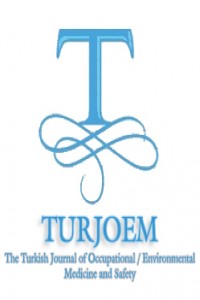Abstract
Cancer is the
second leading cause of death worldwide, right behind cardiovascular disease.
Occupational and environmental cancers are about 10% of all cancer cases. More
than 152.000 deaths occur annually by reason of occupational cancers.
Particular groups of working population such as miners, dye workers, smelter
workers, chemical workers and more of the same is under much risk than the
general population, because of high and frequent exposure to some specific
carcinogens such as radium, radon, benzidine, arsenic, asbestos, benzene,
chloroethers, UV etc. As a result of this high exposure, some types of cancer
may develop especially as lung, bladder and skin cancers and leukemia.
Numerous
experimental models have shown that environmental exposure may alter and disrupt
the regulation of genome. DNA methylation and promoter hypermethylation is very
important for DNA repair, apoptosis, cell cycle control, angiogenesis and
carcinogen metabolism genes. Depletion of S-adenosylmethionine (SAM) and
promoter hypermethylation of p53 occurs in selenium and arsenic related liver
and colon cancers. Exposure to asbestos causes miRNA dysregulation in lung
cancer. Airborne benzene exposure is related to hypermethylation of LINE-1, Alu
and p15. Ionizing radiation induce the transcriptional changes and
transcriptional silencing in genes such as cell cycle regulation/proliferation,
ubiquitin cycle and DNA repair. Additionally, heavy metals such as cadmium,
nickel, and zinc inhibit DNA methyltransferase (DNMT) activity and this causes
a decrase in the level of DNA methylation.
The effects of
occupational cancers on the genome are still ill-defined and a lot of research
is done about this area.
References
- Mehmet Kadir ERDOĞAN
- Department of Biology, Faculty of Arts and Sciences, Bingöl University, 12000, Bingöl, Turkey
Abstract
References
- Mehmet Kadir ERDOĞAN
- Department of Biology, Faculty of Arts and Sciences, Bingöl University, 12000, Bingöl, Turkey
Details
| Journal Section | Articles |
|---|---|
| Authors | |
| Publication Date | February 16, 2017 |
| Published in Issue | Year 2017 Volume: Volume 2 Issue: İssue 1 (1) - 2.İnternational Congress Of Forensic Toxicology |


